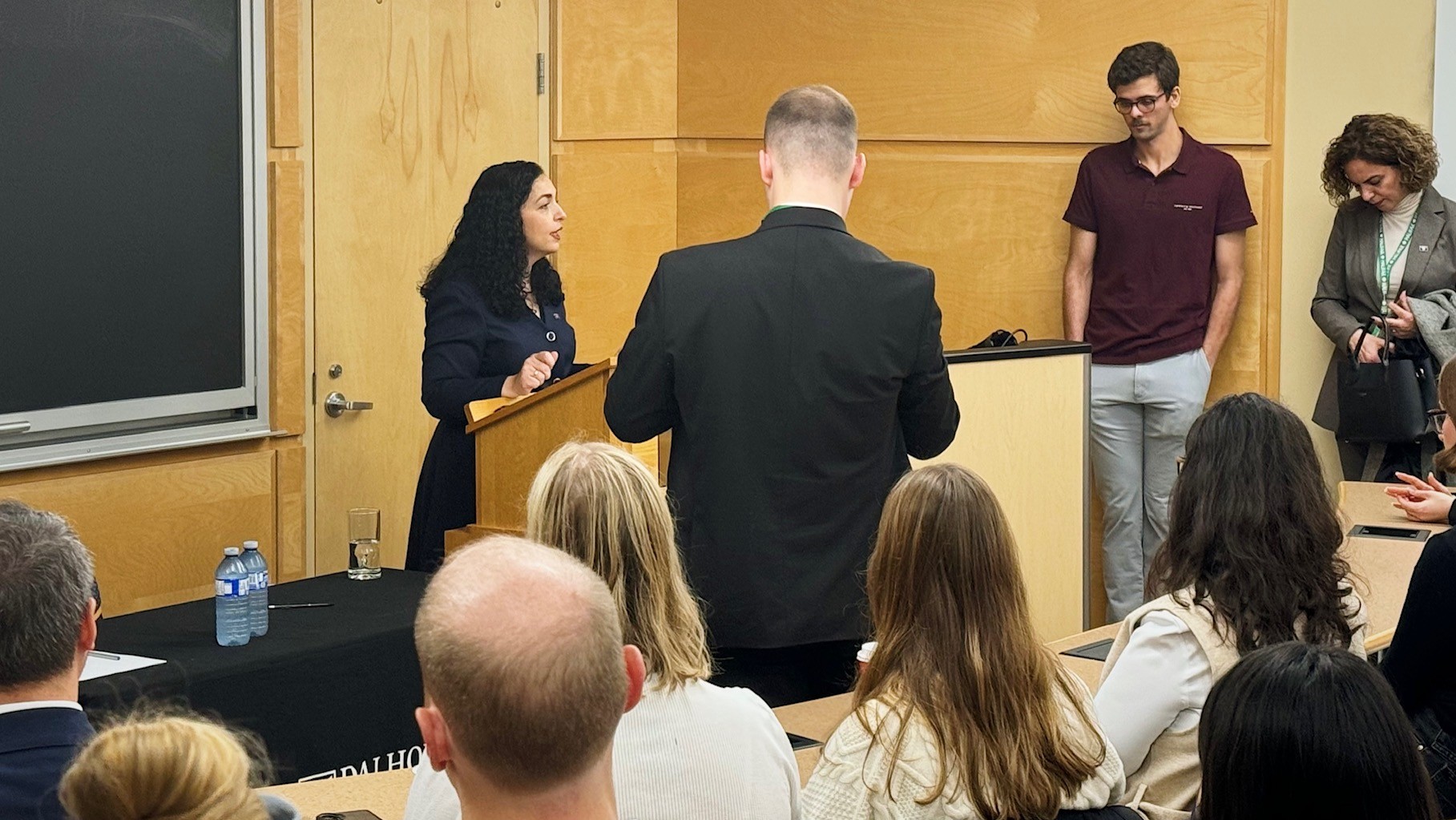Kosovo’s president credits Canada with role in transforming her country
‘Kosovo is proof that these systems work,’ Vjosa Osmani tells Dal audience

caption
President Vjosa Osmani of Kosovo delivers a speech at Dalhousie law school last weekend.Kosovo has used Canada’s support over the past 25 years to build a democratically resilient government that will not slide backward, the country’s president told an audience at Dalhousie this week.
Vjosa Osmani said Kosovo had overcome challenges by reforming its legal system and reinforcing its electoral processes.
“When Kosovo became independent, we worked really hard in building very strong pillars that would defend its democracy even if it’s challenged,” Osmani explained. “We’ve built a tradition of respecting the constitution and safeguarding democratic principles.”
Osmani spoke to about 100 people at Dalhousie University’s Schulich School of Law on Nov. 23. She was in Halifax representing Kosovo at the Halifax International Security Forum, an annual event that brings together global leaders, policymakers and experts to discuss international security challenges.
Osmani also drew parallels between the 1999 war in Kosovo and the ongoing Russian invasion of Ukraine, framing both as battles over democratic values.
The country of 1.8 million people, located in the Balkans, endured a brutal war in the late 1990s. NATO intervened in 1999 after Serbian forces launched a violent crackdown on Kosovo’s ethic Albanian majority.
“The Russian invasion of Ukraine is not just about taking territory; it’s an attack on the values-based systems we stand for — freedom, democracy, and human rights. Kosovo is proof that these systems work.”
Kosovo declared independence on Feb. 17, 2008, and is recognized by more than 100 United Nations member states. The country operates as a parliamentary republic and is a potential candidate for European Union membership since April 2016.
“Once a war-torn society, today Kosovo is a vibrant example that shows when you focus on freedom, democracy and human rights, you can thrive. In 25 years, we’ve gone from being an importer of security to one that exports it, with our forces serving in peacekeeping missions around the world,” said Osmani.
Economic progress has played a key role in the transformation. According to the World Bank, Kosovo has seen nearly a 50 per cent increase in per capita income and a 35 per cent reduction in its poverty rate since independence.
Osmani highlighted these strides, attributing much of the progress to the nation’s youth. “We have the youngest population in Europe, and we’re number one in southeastern Europe for IT competitiveness. Our youth — tech-savvy, multilingual and well-educated — are our most important asset.”
Kosovo has successfully transitioned from a foreign aid-dependent growth model to one driven by consumption and investment, fuelled by diaspora inflows, public infrastructure projects and financial stability.
However, Osmani acknowledged there is still work to be done. “No one has ever lost anything by recognizing Kosovo. Quite the opposite — you’ve gained a friend, a partner, and an ally.”
Osmani opened her remarks by thanking Canada for its pivotal role during Kosovo’s darkest days.
“Halifax is the place where the very first plane with Kosovo refugees arrived just 25 years ago,” she said. “When you are a refugee, as I have been, you understand that in those very dark hours, who stands with you is what truly matters.”
A student then asked Osmani if she still had hope for its future given the rise in “democratic backsliding” in the U.S.
“If someone would have told me then that in 2024 we would be seeing violations of international humanitarian law, I would have said no, the world would never allow it,” she said.
Osmani also acknowledged Canada’s crucial role in Kosovo’s peacekeeping efforts.
“Canada’s contribution to Kosovo’s stability has been fundamental, and as we face new challenges, it is essential that we continue strengthening our alliances,” she said, emphasizing Kosovo’s enduring gratitude for Canadian support.
Canada played a key role in Kosovo’s post-war recovery and development. Following NATO’s 1999 intervention, Canadian forces were part of the NATO-led peacekeeping mission, KFOR, which helped to stabilize the nation after war.
Since their independence in 2008, Canada has supported its democratic transition through diplomatic recognition, as well as aid programs focusing on governance, human rights and the rule of law.
Osmani emphasized Canada’s enduring contributions, saying “Canada has been part of Kosovo’s journey, and together we will continue building a better future.”
About the author

Lindsay Catre
Lindsay Catre is a journalist and graduate student at the University of King’s College, where she is completing her Masters of Journalism....
